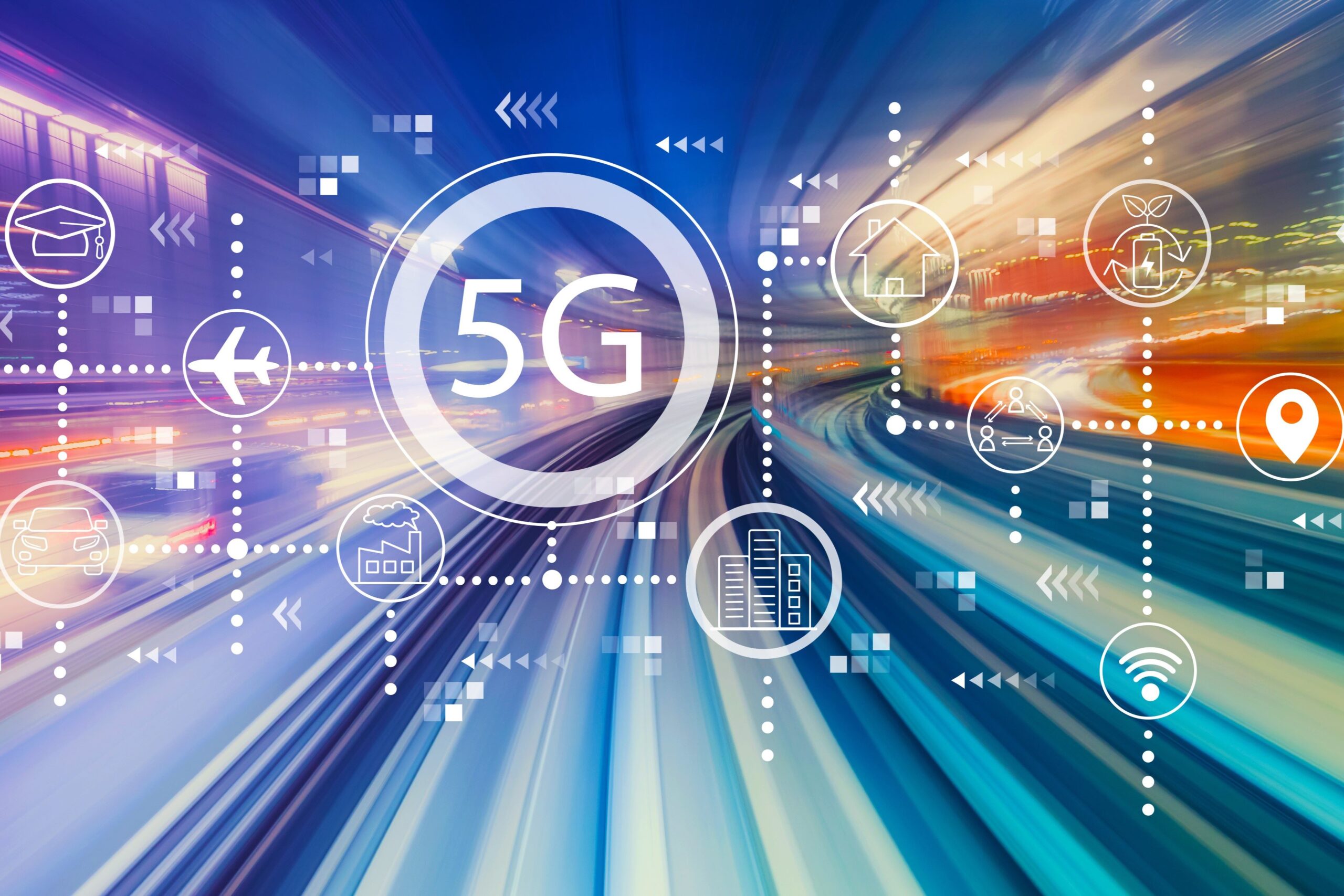The finding that over half of UK adults believe 5G has the potential to improve their day-to-day lives follows the news of Vodafone UK's planned merger with Three UK to accelerate the delivery of a world-class 5G network.
- Over half of UK adults (53%) already believe 5G has the potential to improve their day-to-day lives.
- More people believe that 5G has the potential to improve society, than those that believe Artificial Intelligence (AI) can do the same.
- In social care alone, 5G technology could lead to savings of almost £1 billion a year for the NHS.
- Vodafone and Three merger paves the way for UK 5G leadership, with a pledge to invest £11 billion and reach over 99% of the UK population with 5G Standalone by 2034.
- By having a best-in-class 5G network sooner, the merger will deliver up to £5 billion a year in economic benefit by 2030.
- In June 2023, Vodafone launched the UK’s first 5G Standalone service, known as 5G Ultra, creating the most technologically advanced network for customers.
28 June 2023 – 5G-enabled technologies will deliver significant improvements across society, including saving the NHS almost £1 billion a year, according to new economic modelling.
The findings follow the announcement of the planned combination of Vodafone UK and Three UK, as well as the launch of Vodafone’s 5G Standalone connectivity service which will create the most technologically advanced telecommunications network in the UK.
The initial launch of Vodafone’s 5G Standalone network will offer a glimpse of what is possible in the digital future, while the merger will give the two companies the scale required to invest £11 billion over the next decade. Altogether, this will create Europe’s leading 5G network, support the Government’s 5G ambitions, drive digital transformation and create jobs.
The new modelling, commissioned by Vodafone and conducted by WPI Economics, shows:
- Higher-quality, 5G-enabled remote check-ups and real-time patient monitoring through Internet of Things (IoT) technology will reduce the need for GP and hospital visits. This, an example of a shift to a preventative healthcare approach, could result in £1 billion of NHS savings a year – savings which could cover the equivalent of 15,400 new full time nursing posts.
- Installing 5G-enabled sensors, which detect problems on railways and trains, could reduce delays and cancellations – saving passengers more than 25 million hours over five years. That time saved for passengers is worth £326 million in productivity and wellbeing benefits.
- 5G-powered smart city lights, which detect movement to turn on or dim street lighting, could save local councils £700 million over the next five years. They could also reduce emissions by one million tonnes of CO2 – the equivalent of replacing 250,000 petrol or diesel cars with electric alternatives.
This modelling comes as new polling reveals that the public is realising the role tech can play in improving society for consumers and businesses alike.
A survey of 2,000 UK adults, commissioned by Vodafone, found healthcare (31%), utilities like energy and water (21%), and railways (20%) were identified as key sectors that people think will benefit most from 5G. Unsurprisingly, those were also the areas people say they have been most frustrated with in the last 12 months.
Ahmed Essam, Vodafone’s UK CEO, said: “Our research shows that half of the population think that technology could make their lives easier. For the other half, it’s up to us to bring to life the difference technologies like 5G Ultra can make to everyday life – the streets we walk down, the trains we travel on and how we look after one another.
Our proposed combination with Three UK will give us the scale to accelerate investment in the UK’s digital future. The launch of Vodafone 5G Ultra gives a taste of what life could be like. Together, we can deliver innovation further and faster.”
5G Ultra: Everything you need to know
5G Ultra is Vodafone's name for 5G Standalone services in the UK - the next iteration of 5G. Here's what it can do for you and how you can get it.
Despite the AI boom dominating headlines, the research found people believe that 5G can improve their day-to-day life, more so than AI or other innovative technologies like drones.
People see the green shoots of change across public services – with booking medical appointments online, cashless payments on public transport and smart meters now the norm. Vodafone’s Digital Society Blueprint demonstrates how 5G-enabled technologies are also making a big impact in areas of society that people may not see, as well as what else is in store for the future.
However, some of the older generation still haven’t made up their minds on 5G. Less than a third (31%) of 55-to-64-year-olds see how 5G has the potential to improve their day-to-day lives, compared with nearly three-quarters (73%) of younger tech natives (18-to-34 year olds) – highlighting the need for more education around its potential.
The combined Vodafone UK and Three UK business will deploy Europe’s most technologically advanced 5G Standalone networks, powering the UK’s digital economy and underpinning the UK’s role as a global digital tech leader.
Stay up-to-date with the latest news from Vodafone by following us on Twitter and signing up for News Centre website notifications.
-Ends-
Vodafone’s Digital Society Blueprint: examples of tech in action today and coming soon
- Smart electricity substations are making the rollout of renewable energy sources greener and more efficient, whilst also preserving green spaces.
- Location analytics services on UK railways are using real-time data and smarter apps to track customer patterns, helping travellers plan ahead and have smoother journeys across the UK.
- 5G-connected ambulances could allow paramedics to send scans and initial diagnosis, while en route, for doctors to review before the patient has even arrived in hospital – leading to quicker treatment and more manageable A&E departments.
- Sharing of large files, such as MRI scans and electronic patient records, which typically take two weeks to process, will soon be shared seamlessly between hospitals, cutting the turnaround time by 50%.
Vodafone to provide 5G for UK Power Networks’ world first smart substation trial
The Constellation of smart substations should help make for a more efficient and greener electricity network.
Economic modelling methodology
The 5G roll-out modelling by WPI Economics combines estimates of the productivity and economic growth benefits of 5G. It draws on a range of studies to estimate an average benefit, with evidence drawn from the regional rollout of the 4G network. The 5G rollout scenarios are informed by the differing speeds of 4G’s rollout across UK regions. To estimate the impacts of specific 5G use cases, the case study analysis draws on a wide range of publicly available data sources and studies such as the DfT Passenger Charter, LGA Revenue Data and HM Treasury Expenditure Analysis. The methodology also draws on official government guidelines (such as DfT’s TAG book) and well-documented case studies (such as the Liverpool 5G testbed). All modelling figures have undergone a rigorous quality assurance process.
Headline findings
5G social care
- 5G-powered health and social support would enable patient care to be done remotely. Those in need of care could be supported via high-quality, high-speed video connections. This would allow for more – and higher quality – remote care.
- Based on information from early trials, WPI analysis finds that the NHS could save up to £1 billion a year if 5G was rolled out nationwide – equivalent to 15,400 full time nursing posts. Between 2023 and 2038, the benefits could reach £17.5 billion.
- Benefits extend beyond cost savings: WPI estimates that the quality-of-life improvements associated with installing 5G-powered social care technologies could be worth £1.4 billion – a figure that is due to grow as the population ages.
How the 5G GigaCube is keeping surgeons and gamers connected
From living rooms to operating theatres, 5G-powered routers like Vodafone’s GigaCube can provide fast and reliable internet connections – a potential lifeline where traditional fixed-line broadband isn’t available or isn't fast enough.
5G rail
- Using 5G-enabled sensors on rail infrastructure can improve the efficiency of track maintenance and reduce the rate of fault incidence.
- Analysis by WPI Economics finds that this could save passengers more than 25 million hours over five years – valued at £325 million – increasing productivity and wellbeing.
- WPI estimates that fewer delays and cancellations could save train operating companies around £20 million every 5 years in compensation paid out to customers, money which could be used to drive better services.
- 5G will enable clearer, faster communications between drivers and network controllers, as well as between trains themselves. Trains will be ‘virtually coupled’ as they share braking and acceleration data with each other. This will enable the train separation distance to be reduced by 43%, ultimately allowing for more services to run.
- This will help reduce overcrowding on peak-hour trains, boosting productivity and wellbeing.
5G connected streetlights
- WPI analysis finds that 5G-powered smart city lights could reduce energy usage, save money and reduce emissions: councils could save £700 million over the next five years, while emissions could be reduced by one million tonnes of CO2 – equivalent to replacing 250,000 petrol or diesel cars with electric.
- They could also reduce light pollution, improve wellbeing (lower depression and insomnia rates), help nocturnal animals, and allow for better data collection given lights are fitted with sensors which could improve urban planning – for example, by informing bus routes – without compromising safety.


![crowd-at-the-concert[Adobe_Stock] stock photo of a crowd of people holding up their phones at a concert](https://www.vodafone.co.uk/newscentre/app/uploads/2023/06/crowd-at-the-concertAdobe_Stock.jpg)